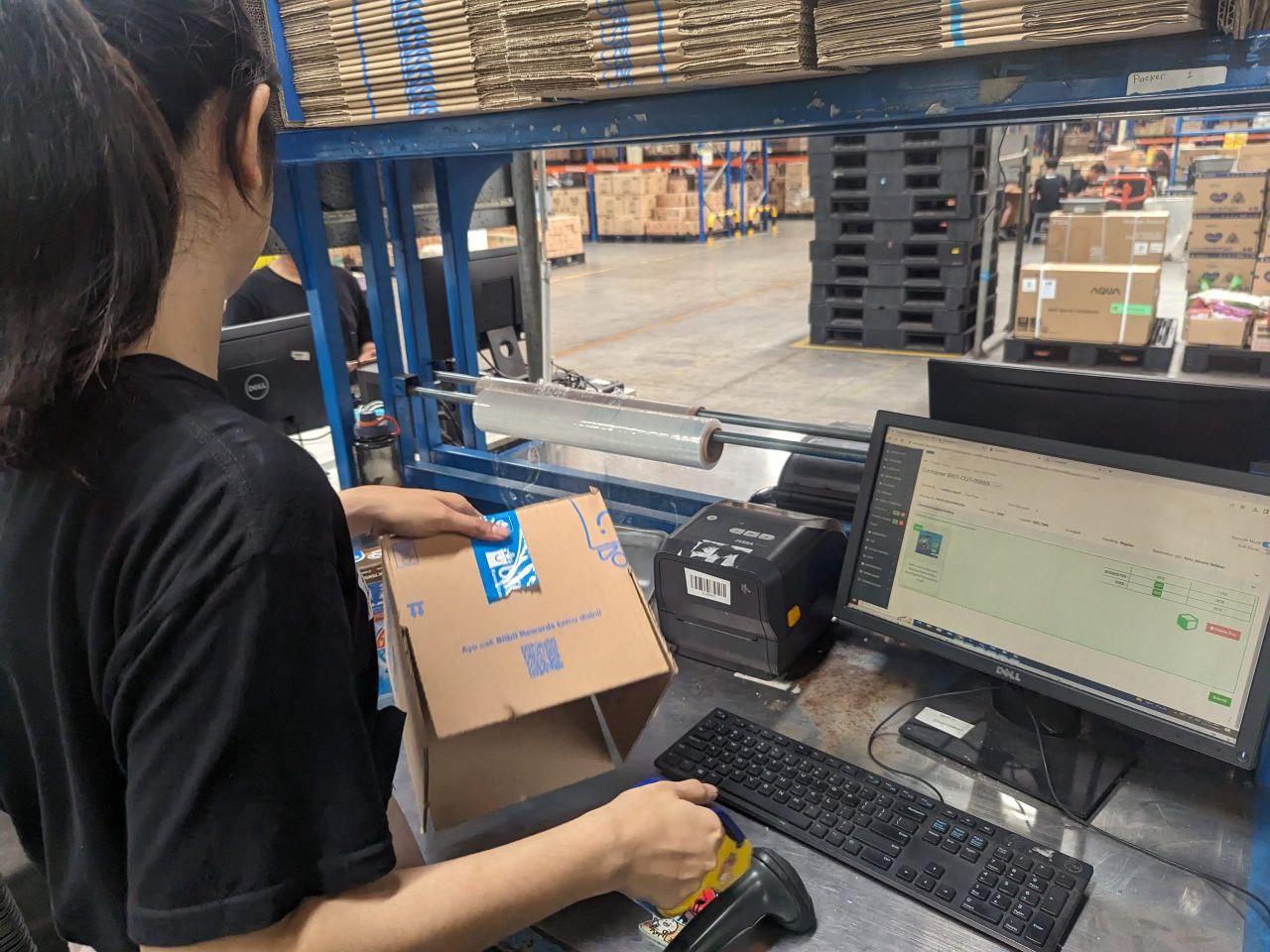Blibli Adopts AI for Package Packaging, Saves Time Up to 30%
Has been used in 16 Blibli warehouses, with an adoption rate of 86% and reduced packaging costs by up to 11%
Blibli (PT Global Digital Niaga Tbk) revealed that the use of artificial intelligence (AI) in its logistics operations can save package packaging time (AI packaging recommendation) between 27%-30%.
This technology began to be developed in early 2023 by an internal team and is gradually being implemented into various aspects, not only in logistics, but also the supply chain to last mile going forward.
Head of Business Process Transformation Blibli Azizah Purwitasari said that this technology has been used to provide recommendations real-time for para packer which type of packaging is most efficient for each package.
"We'll let you know packer what type of item is this, then wrap it in whatever. AI will give recommendations on what number of stock [cardboard] to use, shrink wrap, or bubble wrap, the smallest air gap"It's based on its size and dimensions," he explained during a meeting with a number of media at the Blibli Medan Satria Warehouse, Bekasi, last week (17/11).
This recommendation emerged by incorporating Blibli's entire 12 year track record of how to package packages into AI. The Company has more than 30 types of cardboard with various sizes and dimensions. This AI is connected to the WMS dashboard system (warehouse management system) which are commonly used packer.
After the consumer's ordered items are collected in one container, they will scan them with the QR code listed. WMS will provide recommendations on which packaging method is appropriate for the order and packer just follow it.

Currently, the implementation of AI in package packaging has been adopted up to 86%, which means that the recommendations provided by AI are getting better and more appropriate to be used as a reference by the team. packer when packing goods. In addition, this innovation has also reduced packaging costs by up to 11% during the four months of operation.
Azizah continued, there are five benefits obtained from implementing AI solutions in the Blibli warehouse network, namely:
- save time for better operational efficiency,
- reduce packaging costs by choosing more appropriate materials,
- help the warehouse reduce errors in the process of packing products to be sent,
- reduce risk air gap packaging to ensure that the goods remain in good condition until they reach the consumer, and
- increasing support for ESG values through more environmentally friendly procedures.
“We did 9 cycle loop for AI implementation, starting from business process understanding, data preparation, model development, testing, feedback, iteration. Monitoring still running. "From start to implementation it took 9 months, we are fast because the average in the industry takes 1 year."
AI implementation in other areas
Azizah said that the use of AI technology in logistics operations has many roles, such as predicting stock needs, personalized needs recommendations, real-time problem identification and solutions and contributing to faster and more efficient logistics management.
“AI integration also involves not only technology development, but also in a comprehensive business strategy to achieve competitive advantage and sustainable growth.”
Furthermore, the use of AI strengthens Blibli's commitment to building a more effective and adequate warehousing and distribution system, which is now supported by 16 integrated warehouses spread across several cities in Indonesia. The Blibli logistics network also implements a transformation cycle that originates from a collaboration process with various teams, starting from the Business Process Transformation, Warehouse, Data Science, Data Analytics and Technology Warehouse Management System teams.
More Coverage:
“The process of building an AI model is not just a development activity, but a continuous learning journey. Today, the benefits of AI in logistics systems are increasingly measurable thanks to improvements adoption rate and significant reduction in packaging costs. Of course, evaluation and analysis will continue to be carried out to optimize implementation, ensure efficiency, and increase overall benefits."
There are still many issues in logistics and supply chains that can adopt AI. Some of what has been done is predicting order delays, product recommendations, and measuring shoe numbers. Next, provide route recommendations for the courier last mile based on delivery location to make their time more efficient.
“AI actually helps us, not replaces it, because it makes work processes more efficient. "In the end, human participation remains the most important factor," he concluded.
Sign up for our
newsletter
